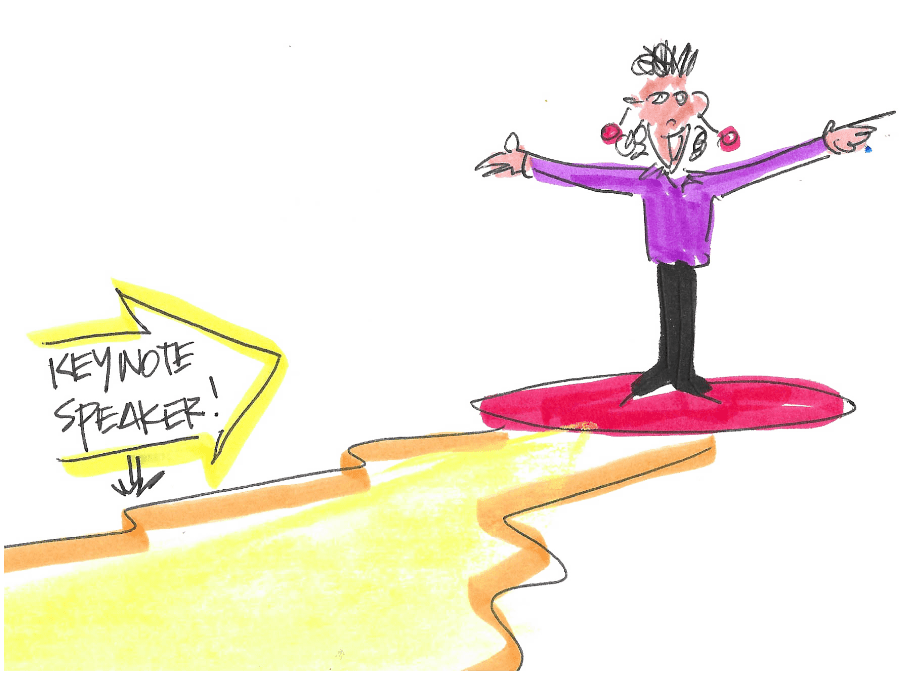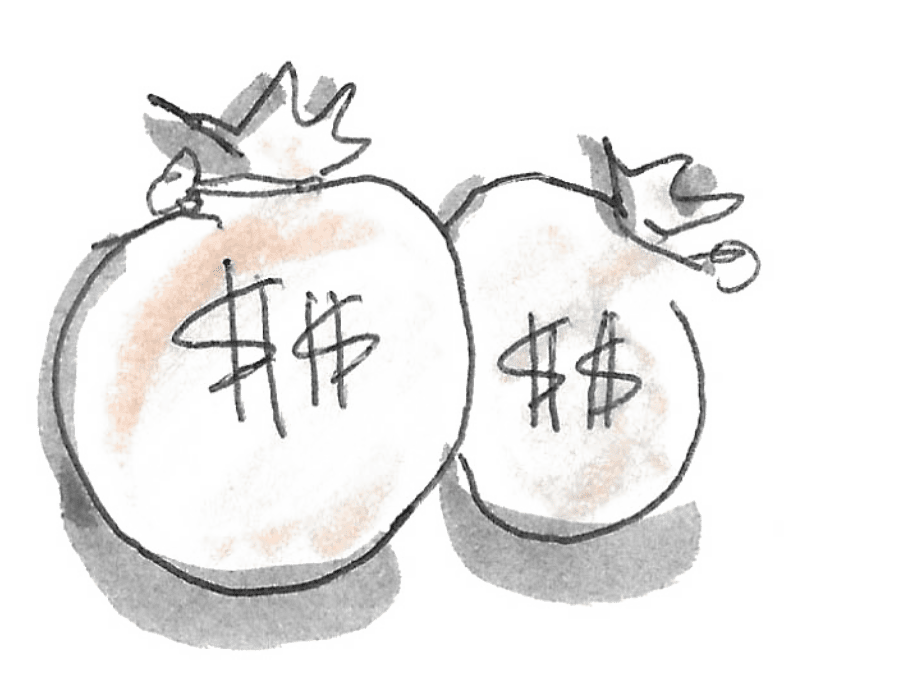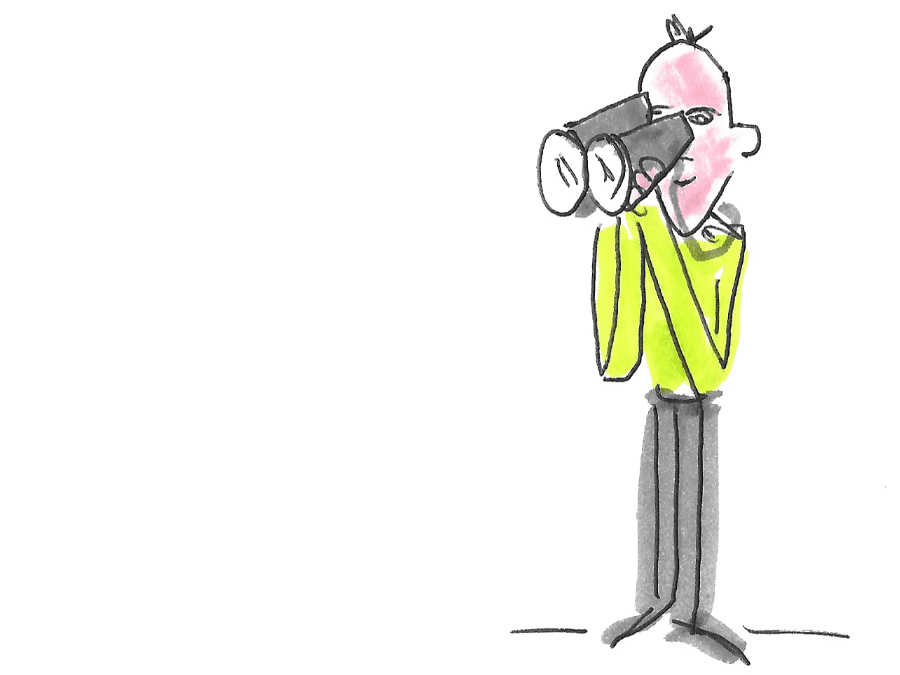
Roadmap to finding the right Keynote Speaker for your Event
Finding a keynote speaker for your event is a simple process when you follow these guidelines. Be aware that you are the best litmus test of all, so pay attention to your intuition. Slowing the process down can help. Finding the right speaker is a combination of knowing what you really need and want and doing your due diligence.
In a rush or looking for something specific? Use the quick links below.
- Roadmap to finding the right Keynote Speaker for your Event
- Choosing a Theme for Your Event
- How Much Does a Keynote Speaker Cost?
- How to Find a Keynote Speaker
- What Makes a Good Keynote Speaker?
- Choosing a Keynote Speaker
- What Is the Difference Between Keynote Speaker and Guest Speaker?
- How Many Keynote Speakers Can You Have?
- The Best Presentations are Tailored to the Audience
- Make Finding the Right Keynote Speaker for Your Event an Adventure!

Choosing a Theme for Your Event
The most powerful conferences have an overarching theme. The theme’s main purpose is to help your participants know what they’ll experience during their time at your event and to help you sell and market it.
The theme should align with your objectives and help you to achieve your audience goals. Do you want them to understand your new product, mission, or vision? Do you want to help them grow their leadership or DEI skills? Whatever theme you choose, make sure it’s relevant, cross-generational and long lasting.

How Much Does a Keynote Speaker Cost?
Keynote speaker prices can range in price from as little as $50 to $500k+ and are dependent upon the speaker’s experience, celebrity status, or if they’re an influencer. Start by knowing your budget range, and then begin your research. Make sure for the budget you have that they’re worth the price!

How to Find a Keynote Speaker
Speakers come in all forms, delivery styles, and interesting gimmicks! Once you know your theme, think about the kind of speaker that might fit the role. It’s helpful to have a team to sort and choose your speaker, since everyone has different preferences and perspectives. This way, you don’t hire a mime, thinking that would be so fun—but only for you!
As a team, identify the criteria your speaker should meet, to create clarity on what you’re looking for. Then look for your perfect fit in any of the following places:
- National Speakers Association
- Local or National Speakers’ Bureau
- Speakers agency
- By Googling your theme
You can also ask your network what keynote speakers they’ve hired in the past who were outstanding. In fact, this is how many people have found me 😉
Once you find someone you think might be interesting, check out their website and look at their testimonials on their website, google, or linked in. If you recognize an author of a testimonial, shoot them a message to ask more about their experience with the speaker.
What Makes a Good Keynote Speaker?
A good keynote speaker inspires your audience to action. Their talk should be filled with stories, and compelling evidence to make the case for any kind of change in behavior, action or mindset. Excellent keynote speakers build a bridge to their audience, making them feel comfortable, engaged and motivated to take the actions that are being presented.
Signs of a Good Keynote Speaker

- Powerful storytelling
- Brevity – clear and understandable concepts
- Confident
- Passionate
- Credible and trustworthy
- Engages audience
- Sense of humor
- Authentic & down to earth
- Clearly articulates actionable takeaways

Choosing a Keynote Speaker
Once you have a theme for your event, you can begin to look for the right keynote speaker. When choosing a keynote speaker, decide if they will set the stage for your event by inspiring your audience into action as an opener or wrap up your event by tying it all together into a final send off as a closer.
Once you have a few possible speakers, create a set of criteria with your planning team, then view previous talks they’ve given to see how they meet that criteria. Look for someone who delivers well from start to finish. Notice how you feel at the beginning, middle and end of their talk. If you and your planning team feel moved, inspired, educated, then there’s a good chance your audience will be too.
Your goal is for your speaker’s talk to inspire your audience into action — whether it is building their enthusiasm to solve a challenge, reflecting on their contribution to the organization or creating a bond between them for future growth. Your keynote speaker is sometimes the pivotal difference in how successful your event will be.
To help you choose a keynote speaker, we wrote an article that addresses the following:
- 7 Questions to Answer Before You Look for a Keynote Speaker
- 10 Questions to Ask a Keynote Speaker Before You Hire Them
- 3 Tips on How to Choose a Great Keynote Speaker
What Is the Difference Between Keynote Speaker and Guest Speaker?
A keynote speaker and a guest speaker are two different things. A keynote speaker is the blockbuster who kicks off your event with a bang, sets the tone and aligns their talk to the theme of your event. A guest speaker can be anyone, who’s not part of your organization, who speaks on some component of your theme. They might be a subject matter expert who helps supply different perspectives or research on a given topic.

How Many Keynote Speakers Can You Have?
Typical events have one opening and one closing keynote speaker for your conference. However, you may have multiple themes for each of your days. If so, you may choose to have a keynote speaker for each day’s opening and closing. Make sure to end your conference with a powerful speaker that helps to wrap things up and gives participants a call to action to end your event on a high note that leaves a lasting impression.
The Best Presentations are Tailored to the Audience
It’s your right as the client to ask your keynote speaker to tailor their presentation to connect with your audience. Give them enough information about your audience so that they know them – this might include sharing links to your website, giving them a “typical audience member” persona and traits. Also let them know what your audience wants to learn or know more about.
This connects directly to your theme and the objectives you have for your event. Many speakers need to be aware of your company or team culture, what they value and what they do in their day to day work or life. The more information you can give your speaker, the better. Then ask them to give you a draft of the bullet points for the opening of their talk, so you can see how they are thinking of tying their story to your audience.
Tailoring the Presentation to Your Audience
Now that they know your audience better, ask them how they’re thinking of tailoring their presentation to your audience. This might include telling relevant stories of companies they have had similar experiences speaking to, or finding a way to weave your core values throughout their story or making references to the essential cornerstone elements of your mission, vision or values.
The Art of Storytelling
The most powerful speakers begin with a compelling story that pulls your audience in. In your review of your potential speakers, this is the most essential element to watch and listen for. The story is the connective tissue that will help the audience relate their experiences to the storyteller.
Not every speaker is a great storyteller, some revert to fact-giving or graphs and charts, but research shows that the story is the one essential ingredient to building the speaker’s credibility. Whether the story is about the speaker themself or someone they have known, the story plays a key role to opening the hearts of the participants and building a bridge to a positive experience.
Connecting with an Audience
A great speaker knows how to connect with their audience. Sometimes it is through a story, a joke, or an interactive experience. You want to ensure that your keynote speaker is skilled at creating a connection and meeting the audience where they are.
In one of my events, I was speaking to an audience who had just watched the first presenter do a series of ninja warrior stunts. They were totally inspired by this guy — and I was to follow his amazing feats. I knew that my opening lines would make or break their engagement, so I asked them, “How many of you think you could have lifted those weights?” Fortunately for all of us, we only have to lift a pen. Let’s do it together! Yay! That is fantastic!”
The goal is to invite your speaker to appeal to the unspoken feelings in the room so that they feel comfortable just being themselves and drop into self-exploration. Your speaker’s job is to put your audience at ease, so they can get out of their own way and listen.
High Impact Presentations
Spending quality time informing your speaker about the participants coming to your event will help them to create a WOW experience for your audience. Invite them to ask questions, to share with you how they’re planning to connect with them.
Ask your speaker what they plan to do to make their content stand out and what the audience will find most memorable. Choose someone who adds something different to their presentation, something you believe your audience will be surprised or stretched by. The best keynote presentations are the ones where your audience walks away knowing something new, learning something new about themselves, and understanding how to apply it to what’s to come.
Make Finding the Right Keynote Speaker for Your Event an Adventure!
Every event is different, so spend some quality time finding the right keynote speaker. Build a team to help you choose a great theme and find a speaker who’s an expert on it. People love to be entertained as well, so a speaker who’s both a great storyteller and entertainer is a plus! Start your search early and treat it like an adventure. Stick within your budget and make sure that they are easy to work with! Remember, you’re their client, not the other way around. 😉
You got this! Big love, Patti




